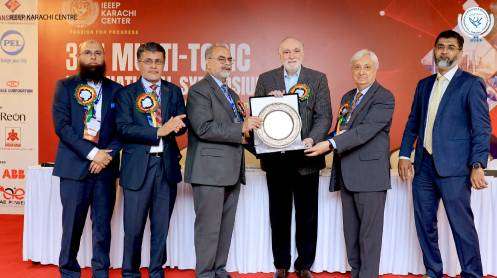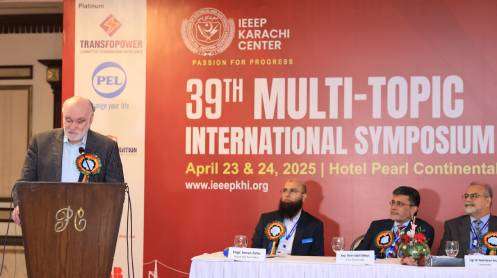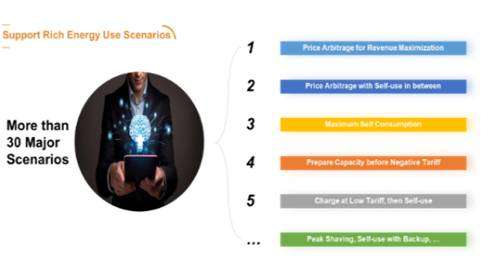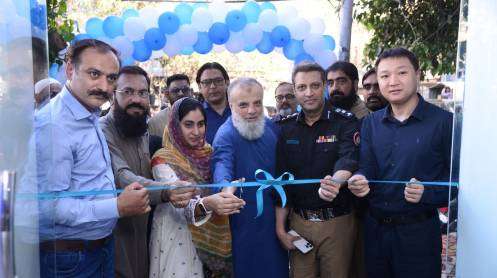PEC to bridge gap between universities, industry to boost research, innovation on campuses for growth of Pakistan
Karachi The Pakistan Engineering Council (PEC) will serve as a vital link between universities, industry, and professional engineering bodies to transform academic institutions into hubs of research and innovation by updating curricula to effectively and sustainably contribute to national development.

The PEC Chairman, Engineer Wasim Nazeer, extended this assurance while addressing as the chief guest at the inaugural session of the two-day 39th Multi-Topic International Symposium of the Institution of Electrical and Electronics Engineers Pakistan (IEEEP) held here at a hotel on Wednesday.
Engineer Nazeer told the audience at the symposium that the PEC would organise brainstorming sessions to consult with professional bodies like IEEEP to adopt a workable strategy to establish academia-industry linkages to find solutions to major engineering problems in the country.
The PEC Chairman urged the engineers associated with various fields to adopt professional ethics and values to show excellence in their respective professions.
He said that there had been too much pol arisation in the engineers’ fraternity in Pakistan, which has been affecting its output for the cause of national development.
The PEC Chairman urged the members of the engineers’ fraternity to indulge in healthy competition with each other with due regard to professional norms and ethics.
He said engineers should assume a leadership role in major infrastructure development initiatives in the country by demonstrating their professional excellence.
He said electrical engineers could do a lot for the sustainable growth of Pakistan’s energy sector, which has been facing several challenges.
Engineer Nazeer said the PEC had started the work to regulate technologists and technicians in Pakistan to enable them to work side-by-side with engineers on projects of national importance.
IEEEP Karachi Centre Chairman, Engineer Navid Akram Ansari, lamented that there had been a serious disconnect between academia and industry in Pakistan, which didn’t allow the engineering universities to become part of the process of research and technological advancements.
He said the PEC should take up such issues with the Higher Education Commission so that the engineering universities should evolve their curricula as per the current needs of the industries.
He urged the engineering universities not to show rigidity to the ideas of evolving their study programmes as per the latest technological advancements in the industries.
Engineer Ansari said the services of IEEEP were always available to the engineering universities to provide the best counselling and guidance to their students for their fast absorption by the industries after graduation.
He opined that universities had an important role to play to ensure that their graduates showcased engineering excellence for the development of Pakistan.
He urged engineers to act as engines for technological advancements and growth in the country.
In his keynote address, Dr Khalid Waleed, Research Fellow at the Sustainable Development Policy Institute, suggested early retirement of power plants based on imported coal to enable Pakistan to earn massive carbon credits.
He suggested that up to 54 per cent of electricity users in Pakistan were protected as lifeline consumers who received blanket subsidies of billions of rupees every year.
He suggested that the government should provide solar power systems to these lifeline consumers to save on its massive blanket subsidy expense.
He said the declining consumption of the grid-supplied electricity by the industrial sector created a serious sustainability issue for Pakistan’s energy sector.
Earlier in his welcome remarks, Engineer Imran Zafar, Honorary Secretary of IEEEP Karachi Centre, said that several senior fellows of the engineering profession from all over Pakistan would present research papers at the symposium to suggest solutions to Pakistan-centric issues in different development sectors.







